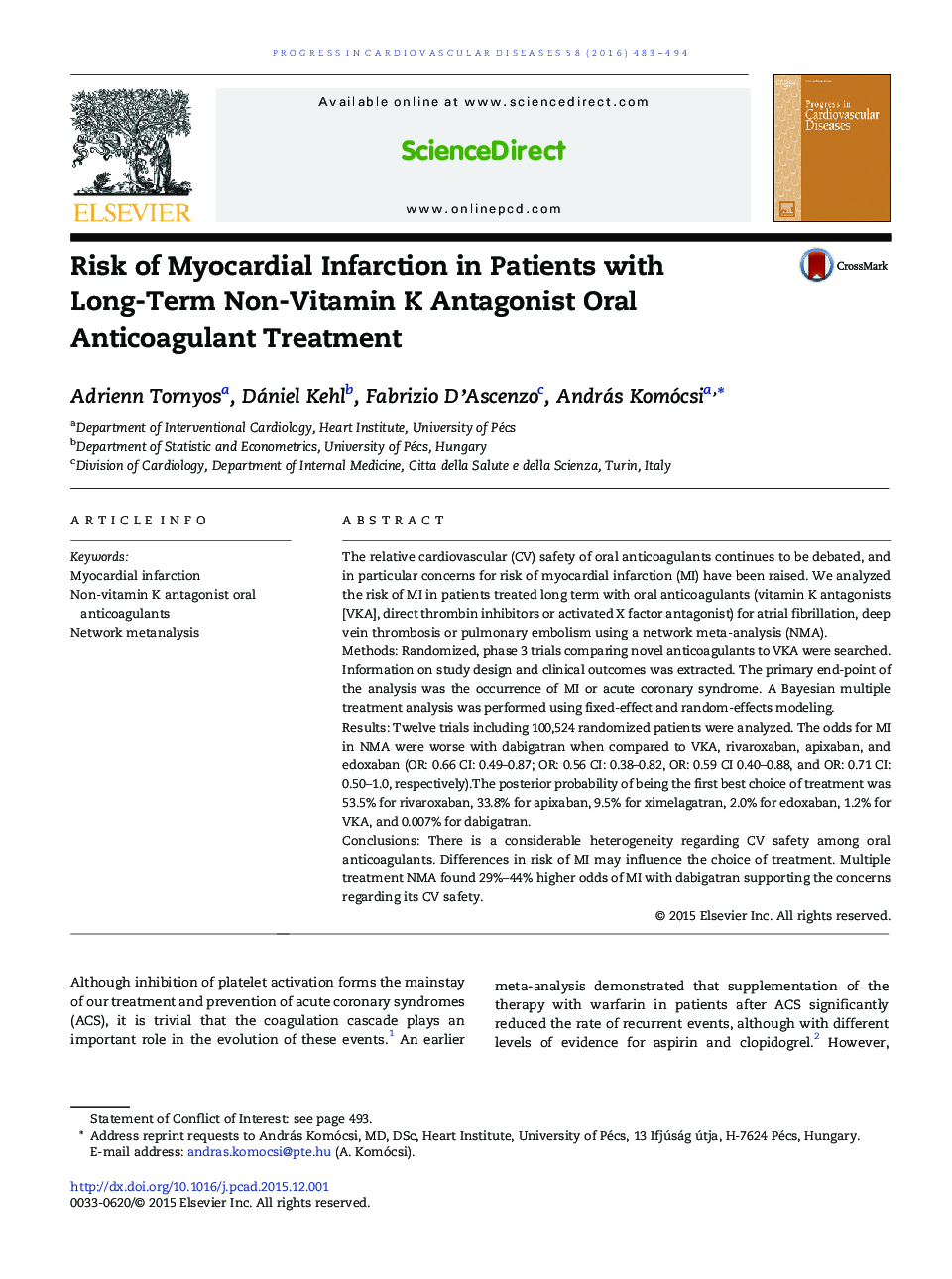| کد مقاله | کد نشریه | سال انتشار | مقاله انگلیسی | نسخه تمام متن |
|---|---|---|---|---|
| 3006208 | 1180969 | 2016 | 12 صفحه PDF | دانلود رایگان |

The relative cardiovascular (CV) safety of oral anticoagulants continues to be debated, and in particular concerns for risk of myocardial infarction (MI) have been raised. We analyzed the risk of MI in patients treated long term with oral anticoagulants (vitamin K antagonists [VKA], direct thrombin inhibitors or activated X factor antagonist) for atrial fibrillation, deep vein thrombosis or pulmonary embolism using a network meta-analysis (NMA).MethodsRandomized, phase 3 trials comparing novel anticoagulants to VKA were searched. Information on study design and clinical outcomes was extracted. The primary end-point of the analysis was the occurrence of MI or acute coronary syndrome. A Bayesian multiple treatment analysis was performed using fixed-effect and random-effects modeling.ResultsTwelve trials including 100,524 randomized patients were analyzed. The odds for MI in NMA were worse with dabigatran when compared to VKA, rivaroxaban, apixaban, and edoxaban (OR: 0.66 CI: 0.49–0.87; OR: 0.56 CI: 0.38–0.82, OR: 0.59 CI 0.40–0.88, and OR: 0.71 CI: 0.50–1.0, respectively).The posterior probability of being the first best choice of treatment was 53.5% for rivaroxaban, 33.8% for apixaban, 9.5% for ximelagatran, 2.0% for edoxaban, 1.2% for VKA, and 0.007% for dabigatran.ConclusionsThere is a considerable heterogeneity regarding CV safety among oral anticoagulants. Differences in risk of MI may influence the choice of treatment. Multiple treatment NMA found 29%–44% higher odds of MI with dabigatran supporting the concerns regarding its CV safety.
Journal: Progress in Cardiovascular Diseases - Volume 58, Issue 5, March–April 2016, Pages 483–494